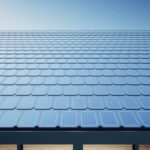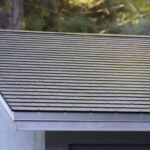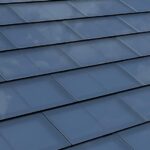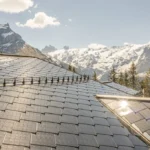For homeowners, ensuring the longevity and durability of your roof is a top priority. Two important aspects to consider are roof moss and roof warranties. Moss growth on roofs is a common issue that can affect the structural integrity of your home. Meanwhile, understanding the intricacies of roof warranties can offer peace of mind and protect your investment. This article delves into these topics, providing essential insights for all homeowners.

Understanding Roof Moss
Roof moss is a green, fuzzy plant that thrives in moist, shaded environments. It often appears on roofs that are shaded by trees or that do not receive adequate sunlight. While it may seem harmless, moss can cause significant damage to your roof over time.
Why Does Moss Grow on Roofs?
Moss grows on roofs primarily due to the presence of moisture and shade. In areas with high humidity or frequent rainfall, moss spores land on the roof and begin to grow. Shaded areas of the roof that do not dry out quickly after rain are particularly susceptible.
Effects of Moss on Roofs
While moss may appear benign, its growth can lead to several problems. Moss holds moisture against the roof surface, which can cause the roofing materials to deteriorate. Over time, this can lead to leaks, structural damage, and costly repairs. Furthermore, the weight of the moss can strain the roof’s structure.
Preventing Roof Moss
Preventing moss growth involves regular maintenance and proactive measures. Here are some tips to keep your roof moss-free:
Regular Roof Inspections
Conducting regular roof inspections can help you identify and address moss growth early. Look for signs of moss, particularly in shaded areas of the roof.
Trimming Overhanging Branches
Trimming trees and branches that hang over the roof can reduce shade, allowing more sunlight to reach the roof surface and reducing moss growth.
Understanding Roof Warranties
Roof warranties are essential for protecting your investment. They provide coverage for defects in materials and workmanship, offering peace of mind to homeowners.
Types of Roof Warranties
There are typically two types of roof warranties: manufacturer’s warranties and workmanship warranties. Manufacturer’s warranties cover defects in roofing materials, while workmanship warranties cover installation errors.
What Roof Warranties Cover
Roof warranties can vary significantly in terms of coverage. Some warranties cover only specific types of damage, while others offer comprehensive protection. It is important to read the warranty carefully and understand what is and isn’t covered.
Maintaining Your Roof to Keep Warranties Valid
To keep your roof warranty valid, regular maintenance is crucial. Most warranties require homeowners to perform routine inspections and maintenance to prevent damage.
Documenting Maintenance and Repairs
Keep detailed records of all maintenance and repairs performed on your roof. This documentation can be crucial if you need to make a warranty claim.
Hiring Qualified Professionals
Ensure that all repairs and maintenance work on your roof is performed by qualified professionals. Unqualified work can void your warranty.
Balancing Moss Control and Warranty Protection
When dealing with moss, it is important to balance removal efforts with maintaining your roof warranty. Some cleaning methods may void warranties, so it is essential to choose safe and approved methods.
Safe Moss Removal Techniques
Using safe and approved techniques for moss removal is crucial for protecting your roof warranty. Avoid using harsh chemicals or pressure washing, which can damage the roof and void warranties.
Consulting Your Warranty Provider
If you are unsure whether a moss removal method will affect your warranty, consult with your warranty provider for guidance.
Conclusion
Understanding the implications of roof moss and roof warranties is essential for homeowners. By taking proactive steps to prevent moss growth and understanding your warranty coverage, you can protect your home and investment. Regular maintenance, careful documentation, and informed decision-making are key to a long-lasting and protected roof.

FAQs
Does moss on my roof void my warranty?
Not necessarily. However, failing to remove moss or using inappropriate removal methods can void your warranty. Always check with your warranty provider.
How often should I inspect my roof for moss?
It is recommended to inspect your roof at least twice a year, especially in areas prone to moss growth.
Can I remove moss myself, or should I hire a professional?
While you can remove moss yourself, hiring a professional ensures the use of safe and approved methods, protecting your roof and warranty.
For further reading on roof moss in coastal climates, roof moss and foundation risks, and roof moss removal dos and don’ts, visit our website. Additionally, learn more about moss on roof from external experts.
This article contains affiliate links. We may earn a commission at no extra cost to you.







